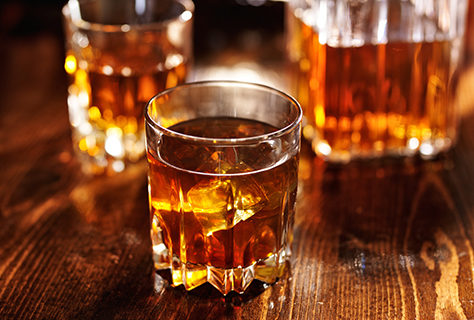Liquor Liability
Areas of Practice Quick Links

Liquor Liability
Florida Statute §768.125 governs when and whether a seller or furnisher of alcohol may be subject to liability for the harm caused by the acts or omissions of intoxicated persons. The statute protects only two classes of people and only then, under certain circumstances. They are (1) persons who are under the lawful drinking age, and; (2) persons to whom the provider serves alcohol despite knowing, either directly or indirectly, that such person is habitually addicted to the use of any or all alcoholic beverages. Thus, the statute and potential liability stemming therefrom is extraordinarily limited. The crux of the statute is lawmakers’ recognition of the need to protect these two classes of people who are deemed incapable of making responsible drinking decisions and punishment of the acts and omissions of profit driven bars and liquor establishments in the face of that knowledge. The statute has no application to social hosts or to mere sellers of alcohol where consumption is not to be had on the premises, ie: supermarkets. Notwithstanding the hurdles imposed by the state statute, Jeannete Lewis has successfully handled a number of dram shop cases in Florida.
Notable cases include:
Armstrong vs. XYZ Bar Operator and Landlord of the Bar – $1.125 Million settlement (Volusia County)
A New Jersey police officer was down for his first Bike Week when, while operating his motorcycle at about 10:00 PM, a severely inebriated pedestrian who had just left his favorite bar, walked into the roadway, causing a collision, his death and serious injuries to Officer Armstrong. The pedestrian had a long drinking history, extensive liquor related criminal record, prior treatment records for alcohol abuse and was a regular at the bar. He was known by the bartenders there as a “flyer” who was always drunk; he was belligerent and frequently took his shirt off inside the bar. The bar was of the type that opened at 8 am, served only wine and beer and served no food. Suit was filed against the landlord on an agency theory as well as the current bar operator under Florida’s reverse dram shop statute.
Trosper vs. Local Liquor Lounge – $500,000 Settlement (Broward County)
Ms. Trosper was a regular patron of at a local bar and when there, she would frequently over-indulge. After leaving the bar one morning in an intoxicated condition, she attempted to walk across a multi-lane roadway at which time she was struck by a car that also had just left the same establishment. Though the vehicle fled the scene, motorists called 911 and followed it until police could apprehend the driver. Suit was filed against the bar under Florida’s reverse dram shop statute for knowingly serving Ms. Trosper whom was habitually addicted to the use of any or all alcoholic beverages. A pre-trial settlement was reached.
Bass v. Local Yacht Club – $500,000 Settlement
Elderly Mrs. Bass was a member of a local yacht club whereat she had been a member for a number of years and was known to drink often. The bartenders there knew her drink of choice and would always have her drink waiting for her as she walked in. The bartenders never turned her away or refused her, per club policy. Receipts for Mrs. Bass’ bar purchases at the Club over a two year timeframe were obtained and demonstrated a significant drinking history while at the Club. Credit card purchases also demonstrated regular visits to local liquor stores which fact shored up the allegation that Mrs. Bass was an alcoholic (habitually addicted to the use of any or all alcoholic beverages). On the date in question Mrs. Bass had been at the club drinking for several hours. When she got up to leave, she was intoxicated, fell, hit her head and died due to a brain bleed. Suit was brought against the club under Florida’s reverse dram shop act for serving someone they knew to be a habitual drunkard. NOTE: the bar’s knowledge of one’s addiction to alcohol may be proven by circumstantial evidence such as serving someone a number of drinks on a number of occasions; seeing the person intoxicated or impaired on a number of occasions, personal admissions, etc.
